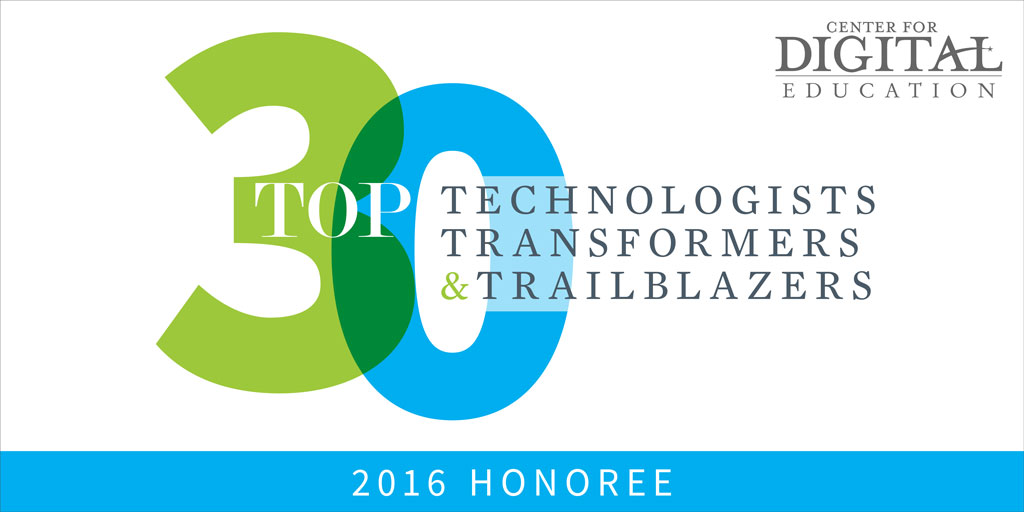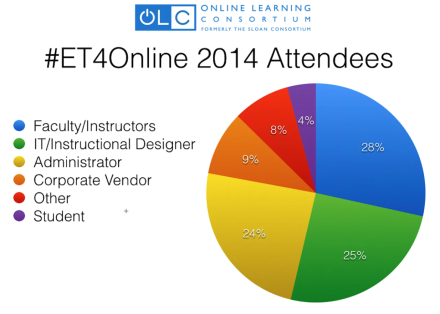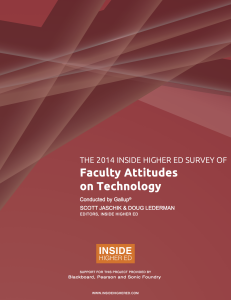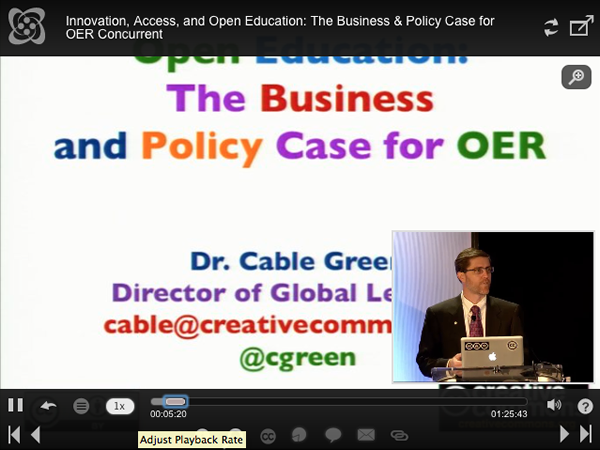I was honored to learn that I have been named one of the Top 30 Technologists, Transformers & Trailblazers of 2016 by the Center for Digital Education (CDE). Each year, CDE recognizes K-20 education leaders who have transformed learning through the innovative use of technology in its annual Top 30 awards program and publication. Recognizing the Top 30 Technologists, Transformers and Trailblazers across America, CDE aims to honor pioneers in education technology and showcase the accomplishments and best practices of award winners. Nominations are judged on:
- Efforts to improve education with digital tools
- Impact of those efforts on student achievement; the institution; and the local, state and national scene
- Creativity and initiative to make change
- Display of leadership qualities
More details and a the complete listing of award winners are available at www.centerdigitaled.com/top30.




 “
“

